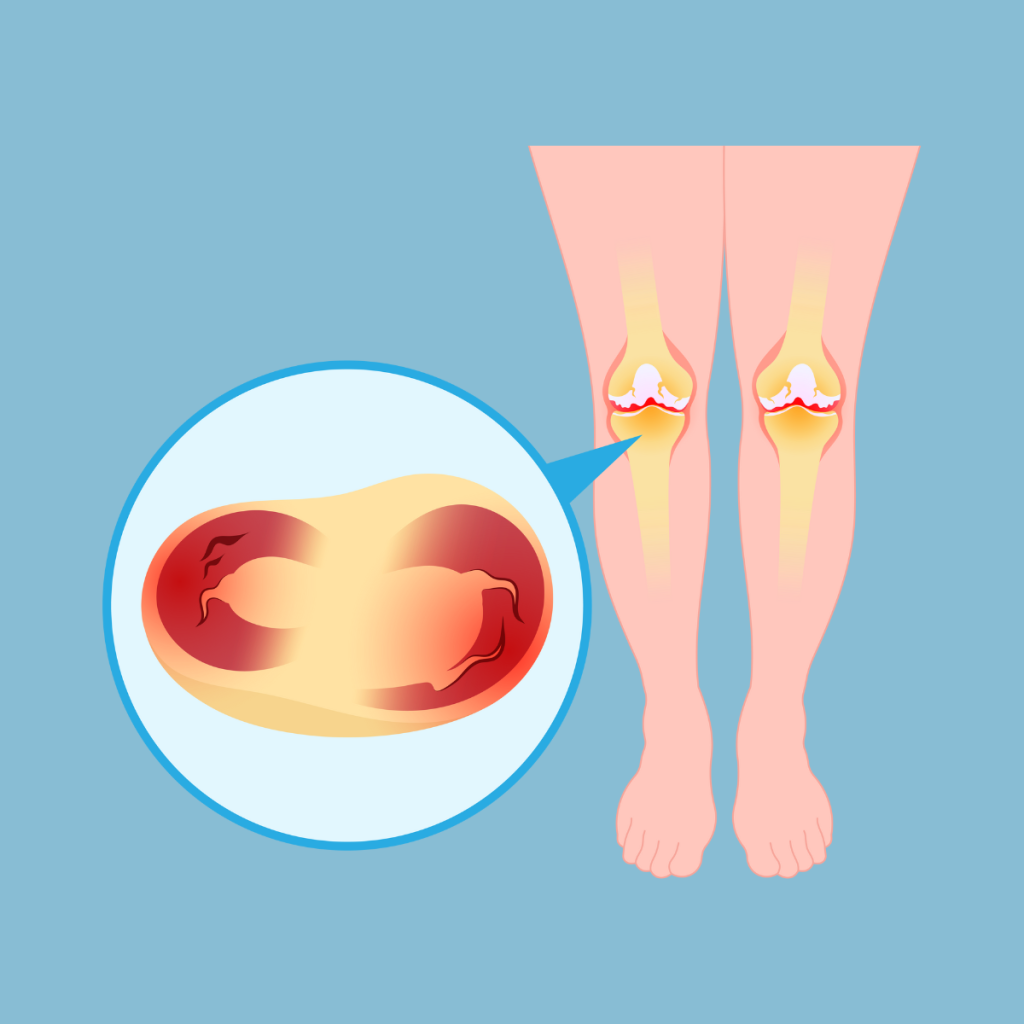Many individuals who come to our examination rooms have previously undergone meniscus surgery and are seeking assistance in alleviating their persistent knee pain. While some experienced pain immediately following the surgery, others noticed a gradual worsening of their pain over time. The question arises, how did this occur?
Knee pain can be debilitating, affecting daily activities and making even the simplest tasks a challenge. A meniscus tear is a common cause of knee pain, and while surgery is often recommended for treatment, some patients may experience increased pain after the procedure. In this blog post, we will explore why knee pain can worsen after meniscus surgery and offer potential solutions for managing the pain.
Understanding Meniscus Tears
Before delving into the reasons why knee pain can worsen after meniscus surgery, it is important to understand the meniscus and its function in the knee. The meniscus is a piece of cartilage that acts as a shock absorber between the thigh bone (femur) and shin bone (tibia) in the knee joint. It helps to distribute weight and provide stability to the joint.
Meniscus tears are a common injury, especially among athletes and those who engage in activities that put stress on the knee joint. The tear can be a result of sudden twisting or turning of the knee or degenerative changes due to aging. The symptoms of a torn meniscus include pain, swelling, stiffness, and limited mobility in the knee joint.

Meniscus Surgery
When a patient experiences a meniscus tear, surgery may be recommended as a treatment option. There are two types of meniscus surgery:
- Partial meniscectomy – This procedure involves removing only the torn part of the meniscus, leaving the remaining healthy tissue intact.
- Meniscus repair – This procedure involves stitching the torn pieces of the meniscus back together, allowing it to heal naturally.
Recovery time and expectations for pain will vary depending on the type of surgery and the individual patient. However, it is important to note that some patients may experience increased knee pain after meniscus surgery, which can be concerning.
Why Knee Pain Can Worsen After Meniscus Surgery
There are several reasons why knee pain can worsen after meniscus surgery. These include:
- Infection – In rare cases, an infection can develop after surgery, leading to increased pain, swelling, and redness in the knee joint.
- Incomplete healing – While meniscus surgery is designed to help the meniscus heal, sometimes the tissue does not heal properly, leading to continued pain and discomfort.
- Further injury – Patients may inadvertently injure the knee joint again, either during the recovery process or after returning to regular activities. This can lead to increased pain and potentially damage the repaired tissue.
- Scar tissue – As the body heals from surgery, scar tissue can form around the repaired tissue or in other areas of the knee joint, causing stiffness and pain.
- Misalignment of the knee – If the knee joint is misaligned, it can put additional stress on the repaired tissue, causing increased pain and discomfort.
Treatment Options for Increased Knee Pain After Meniscus Surgery
If you are experiencing increased knee pain after meniscus surgery, there are several treatment options to consider. These include:
- Physical therapy – A physical therapist can help you regain strength and flexibility in the knee joint through exercises and stretches. This can help reduce pain and improve mobility.
- Medication – Over-the-counter pain relievers such as ibuprofen or acetaminophen can help reduce pain and swelling. Your doctor may also prescribe stronger pain medication if necessary.
- Regenerative Medicine – Platelet-Rich Plasma therapy, prolotherapy, and stem cell therapy can help regenerate damaged tissue (such as a torn meniscus) and can often help patients avoid an additional surgery.
- Additional surgery – In some cases, additional surgery may be necessary to address the underlying cause of the increased pain.
Preventing Further Knee Injuries
Preventing further knee injuries is important for managing knee pain and reducing the risk of future meniscus tears. Here are some tips for reducing knee strain:
- Avoid high-impact activities – Activities such as running, jumping, or playing sports can put a lot of strain on the knee joint. Consider low-impact exercises such as swimming, cycling, or yoga instead.
- Wear proper footwear – Wearing supportive shoes with good shock absorption can help reduce the impact on the knee joint during exercise or daily activities.
- Maintain a healthy weight – Being overweight can put extra stress on the knee joint, increasing the risk of injury or exacerbating existing pain. Maintaining a healthy weight can help reduce this risk.
- Strengthen the muscles around the knee – Strengthening the muscles around the knee joint can help provide additional support and reduce the risk of injury. Exercises such as squats, lunges, and leg presses can be beneficial.
In Conclusion
While meniscus surgery is a common treatment option for a torn meniscus, some patients may experience increased knee pain after the procedure. This can be concerning, but there are several reasons why this may occur, and several treatment options to consider. If you are experiencing increased knee pain after meniscus surgery, it is important to talk to your doctor or physical therapist to determine the underlying cause and develop an appropriate treatment plan. Additionally, taking steps to prevent further knee injuries can help manage pain and reduce the risk of future injuries. With the right care and treatment, it is possible to manage knee pain and maintain an active lifestyle.
Learn More About Alternative Ways to Alleviate Your Pain
Get back to doing the things you love, faster & without surgery.
Request an Appointment Today!